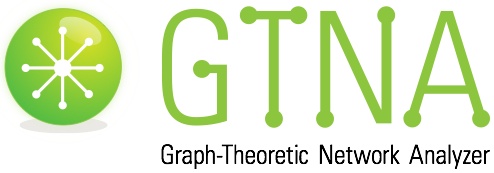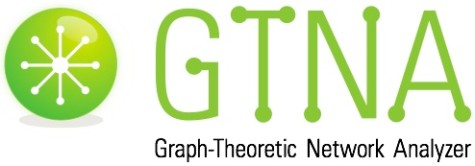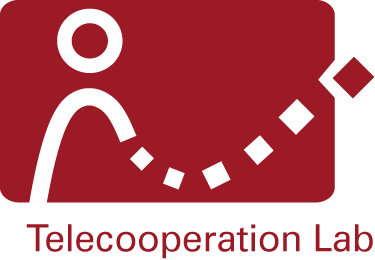

GTNA is a Java-based framework that allows for the graph-theoretic analysis of arbitrary network topologies. Snapshots can by imported from network simulators in various formats. Also, they may be generated using network topology generators implemented in the GTNA framework. GTNA is easily extendible through a well-defined plugin interface. New metrics as well as network topology generators can be implemented with very little effort. We already provide a large set of commonly used graph metrics that are implemented in GTNA. This contains metrics such as the computation of shortest path lengths, different degree distributions, clustering coefficient, network fragmentation as well as the rich-club connectivity. A large set of topology generators has also been implemented, including canonical networks, common networks models and peer-to-peer networks. We are currently implementing additional metrics like the motif recognition as well as the identification of role-to-role connectivity profiles. We are also planning to include realistic Internet topology generators such as the Positive-Feedback Preference model (PFP) and the Parallel Addition and Requiring Growth model (PARG). Furthermore, we intend to extend the general generation process to allow for a more dynamic topology creation to gain deeper insights into the development of networks during their development.
Publication
GTNA was introduced at the Spring Simulation Multiconference in Orlando, Florida on April 11 – 14, 2010.
Publication: GTNA – A Framework for the Graph-Theoretic Network Analysis.pdf (opens in new tab) (186 KB)
Downloads
GTNA requires the Apache Commons Mathematic Library, that can be obtained here.
The source code of the current version of GTNA can be downloaded using the following links.
A jar-archive is available as well, which also requires the configuration file.
Source Code
The source code of the current version of GTNA can be obtained from GitHub:
https://github.com/BenjaminSchiller/GTNA
GTNA requires the Apache Commons Mathematic Library as well as the log4j library. They are available in the lib folder and can also be downloaded here and here.
Additional Resources
Presentations:
gtna-2010-04-06.pdf (opens in new tab) (2,81 MB)
gtna-2010-04-13.pdf (opens in new tab) (2,59 MB)
gtna-2010-06-30.pdf (opens in new tab) (447 KB)
Introduction:
gtna-introduction.pdf (opens in new tab)(480 KB)
Mailing List
The GTNA Mailing List is used for important announcements concerning new features and general information about GTNA.
GTNA was introduced at the 2010 Spring Simulation Multiconference in Orlando, Florida on April 11 – 15, 2010.
_______________________________________________________________________
For further information please contact Benjamin Schiller (schiller[at]cs.tu-darmstadt.de).



